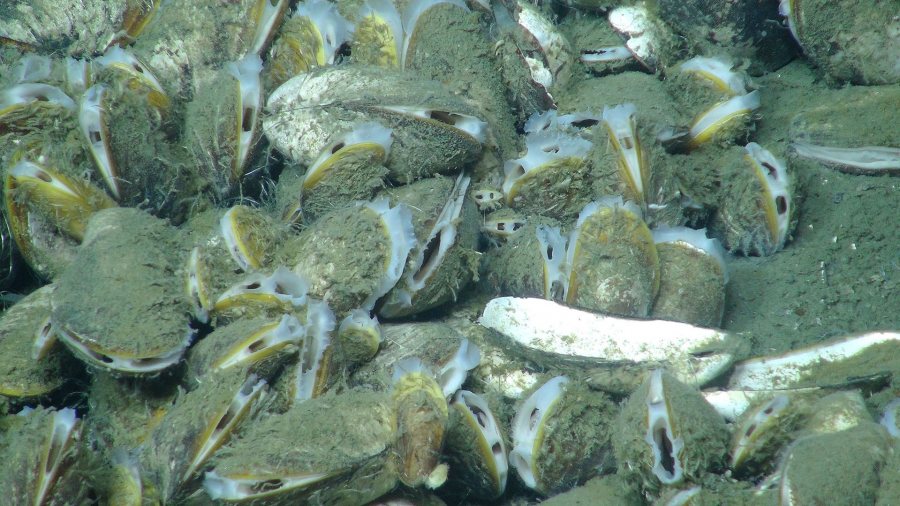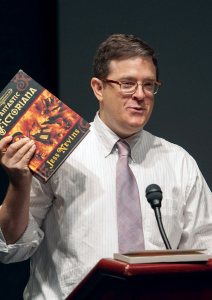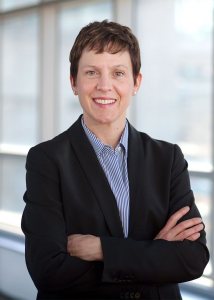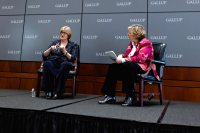
Bates in the News: March 25, 2016
Jennifer Guckel Porter ’88
How to give candid feedback when your organization is too nice — Harvard Business Review
“Building candor and feedback into any [workplace] culture is challenging,” writes Jennifer Porter ’88 in Harvard Business Review, and it can be particularly difficult when a company’s culture is “nice, respectful, cordial, warm, relationship-focused, and calm.”
Porter, who is managing partner of The Boda Group, a leadership and team development firm, offers seven tips for leaders who want to instill a culture that’s a bit more feedback- and candor-driven.
The goal must always be to help.
It’s important for leaders to know that giving feedback “is not about venting or getting something off our chest,” she writes.
Instead, the goal must always be to help, whether that’s helping “someone else develop and be more effective” or helping along a “conversation, decision, or group be more productive.” Honest, constructive feedback is “in service of other people…It has nothing to do with us feeling better.”
Julia Sleeper ’08
Tree Street announces major renovation to downtown youth center — Lewiston Sun Journal

Julia Sleeper ’08 (right), co-founder and executive director of Tree Street Youth, speaks with Lewiston High student Binto Matan and Gene Geiger, whose family announced a major gift on March 16 to support Tree Street’s expansion. (Phyllis Graber Jensen/Bates College)
Co-founded by Julia Sleeper ’08 and Kim Sullivan ’13 in 2011, the former “two-room summer youth program tucked into a building,” in the words of reporter Scott Taylor of the Lewiston Sun Journal, is close to completing a $1.3 million fundraising campaign to renovate and expand its downtown headquarters at the corner of Howe and Birch streets.
The Sun Journal covered the March 16 announcement that the nonprofit would expand its offerings and facility, which currently occupies a former daycare center and painter’s storage building.
Tree Street Youth now has 12 paid staffers and serves up to 150 children each day, kindergarten to high school, including a college-prep program that achieved a 95 percent college acceptance rate in 2015.
Will Ambrose
For the first time, researchers pinpoint the length of an ancient Arctic methane seep — Geochemical News
An international expert in gathering valuable climate information stored in ancient clam shells, Professor of Biology Will Ambrose has learned yet another secret from his clam connection.
Namely, that around the end of the last Ice Age, a 1,000-year-long methane release occurred from the Arctic Ocean floor near Svalbard, a Norwegian archipelago in the high Arctic.
It’s the first time oceanographers have been able to measure the duration of an ancient methane release, reports Geochemical News in a story originally published by the Centre for Arctic Gas Hydrate, Environment, and Climate.

A curious fact about bivalves that live near deep-sea methane seeps: they’re not part of a photosynthetic food chain. Instead, they survive on bacteria that use methane to turn ocean carbon into sugars. These are present-day methane-dependent mussels. (Image courtesy of Deepwater Canyons 2013 Expedition NOAA-OER/BOEM/USGS)
Analyzing shells taken from a sediment core pulled from the ocean floor allows Ambrose and fellow researchers to know “when the clams lived,” around 17,000 years ago.
Then, by looking at depth of clam shells in the core sample, they were able to conclude that “methane had to persistently leak out of its natural reservoir at this particular site for a thousand years,” Ambros said.
Ambrose serving as a National Science Foundation program director, leading the Arctic Observing Network program, through 2017.
Jess Nevins ’88
A decade-long search for global pulp fiction culminates in The Encyclopedia of Pulp Heroes — Houston Chronicle

Jess Nevins ’88 is a reference librarian and faculty member at Lone Star College–Tomball. (Lone Star College photograph)
Jess Nevins ’88 is a librarian at Lone Star College–Tomball “and a man obsessed — with superheroes and pop culture,” writes Nora Olabi of the Houston Chronicle.
Nevins has spent a decade “scouring every corner of the world for popular literature in all different languages,” Olabi writes, “uncovering Egyptian and Indonesian dime novels, a Burmese equivalent to the popular British detective Sherlock Holmes, and even a Japanese King Kong.”
This spring, Nevins’ research will culminate with the publication of The Encyclopedia of Pulp Heroes.
Nevins is an expert in Victoriana and pulp fiction — he published the Encyclopedia of Fantastic Victoriana in 2005 — and is well-known for his comic book annotations.
He tells the Chronicle that people think of pop culture as “the purview of Americans.” Hardly; it is “gloriously varied and complex….What we know about in America is really limited compared to what’s out there.”





